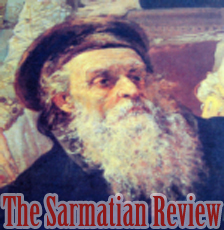| This Issue | Back Issues | Editorial Board | Contact Information |

Lightning and Ashes
Anna Gąsienica-Byrcyn
In this collection of poems John Guzlowski offers a voice to his parents Jan and Tekla and their war experiences. Deeply affected by his parents’ suffering and struggles during and after the Second World War, the poet retells their life stories, speaking for them and in the name of all the forgotten and voiceless survivors and refugees. The poems tell the story of the Guzlowski family’s remembrances of the crimes they witnessed, as well as recounting their years before the war and commenting on the hardships they experienced as Displaced Persons (DP).
The volume consists of three parts plus a prologue and an epilogue. In My Mother Reads My Poem “Cattle Train to Magdeburg,” Guzlowski describes his mother as an eyewitness to the war’s madness. Tekla Guzlowski comments and reflects on the transport of war prisoners. Overwhelmed by emotions, she refuses to recollect all the painful events that she has seen and endured. The unsaid has to be filled out by the reader’s knowledge. We are left with the sense that the war traumas are beyond description. Part I: What It’s Like Now, Part II: When My Mother and My Father, My Sister Danusha and I Came to America, Part III: What the War Was Like interweave vignettes of war crimes and slave labor camps with the recollection of lost innocent years, gruesome occupations, and the family’s hopes of new life in the United States. Tekla Guzlowski talks about her home west of Lviv, her family being shot by the “hungry men” who were like “terrible and big buffaloes,” and her subsequent journey of sixty years. No one created a museum for this survivor. The war taught her that the world was a broken and cold place filled with worthless men, where one had to work hard to stay alive and where birds did not sing.
Her husband, a simple man with no knowledge of the world, knew only physical labor, pain, and death. The years of suffering in the slave labor camps brought them together. Jan Guzlowski dug beets, dragged fallen trees, and made bricks in order to survive in the German camps. After the war and an interlude in the DP camps, Guzlowski’s parents and their two children, Jan and Donna, arrived in the United States. They were “stiff like frighten ostriches” and recalled the beautiful Polish countryside while dreaming of their future in America. They were all deeply scarred physically and emotionally by their experiences. Their mother could not erase from her memory the German soldiers who shot her family and all the men, women, and children in her village. Jan Guzlowski could not forget his humiliation and the hunger that forced him to eat leaves off trees, bark, flies, leather buttons, cloth caps, roots, newspaper, and any seeds found in the dry dung left by the cows. He remembered his friend, an artist from Wilno who was castrated and killed by the Germans. He had nightmares of Germans changing into wild dogs. He thought of himself as a corpse that made its journey and was waiting for “the slumber promised by God in the bible and other books that lie.” Guzlowski’s volume ends with a lyrical epilogue in which the poet walks with his little daughter in the autumn garden, thinking about his dead parents and their world of “lightning and ashes.”
John Guzlowski writes in a concise and naturalistic language. His poems convey his parents’ voices with great clarity. He often employs strong words to emphasize the inhuman and primitive conditions of the war and the German slave labor camps. He softens the horrible scenes with the warm depictions of his mother, and he contrasts German terror with his father’s helplessness, and his dreams of pigeons, “the birds without chains.” This volume of poetry is a testimony, a document to the human drama that has not yet been absorbed by people outside Poland. Lightning and Ashes is an important literary account of the Holocaust of Polish Catholics. Guzlowski restores the voices of its forgotten survivors. He truly is a follower of La Rochefoucauld’s maxim that “it is better to light a candle than to curse the darkness.”
Back to the January 2008 Issue
The Sarmatian Review
sarmatia@rice.edu
Last updated 1/26/08